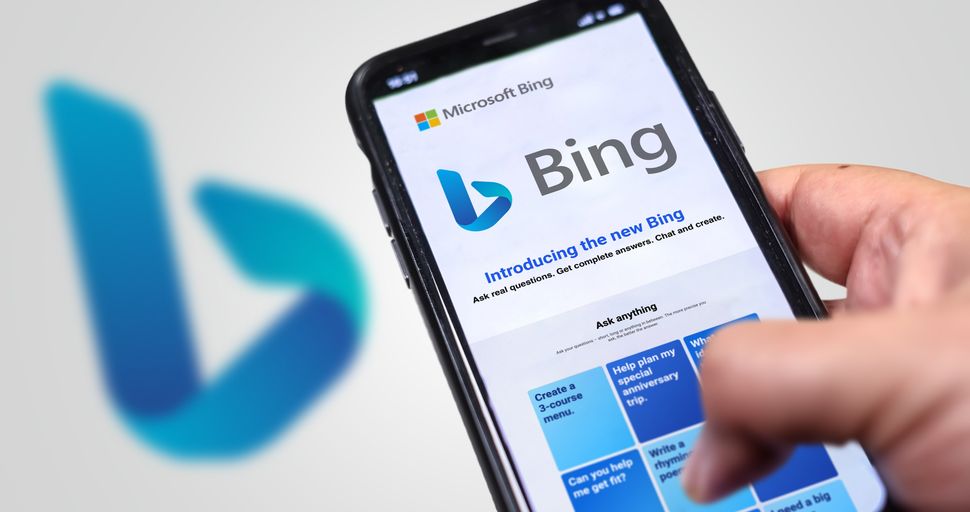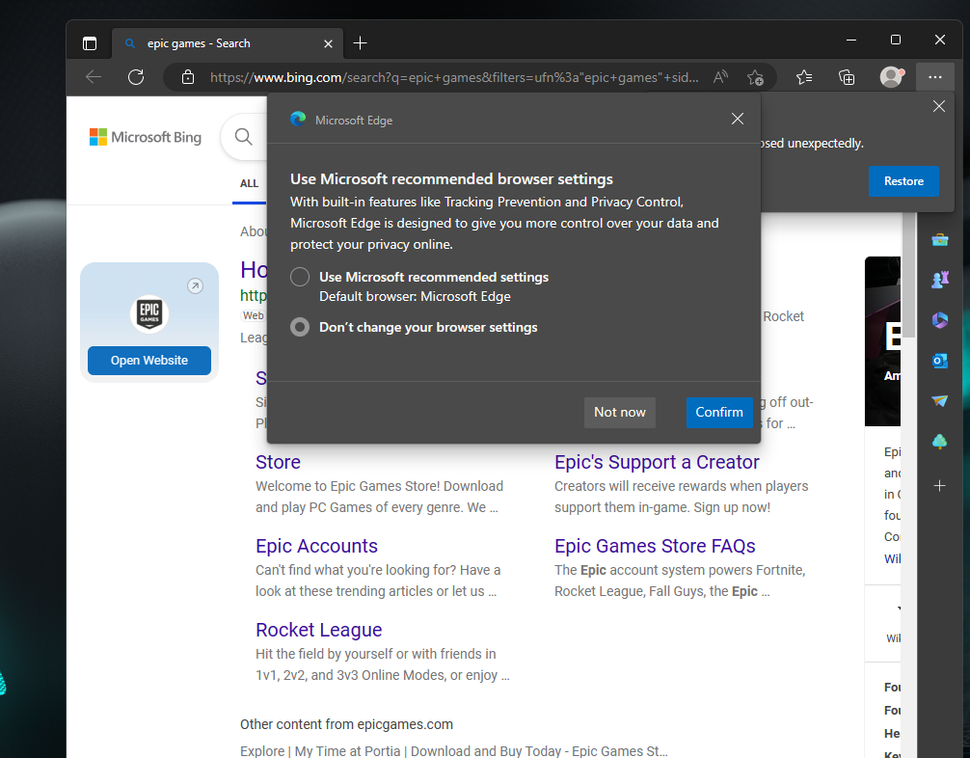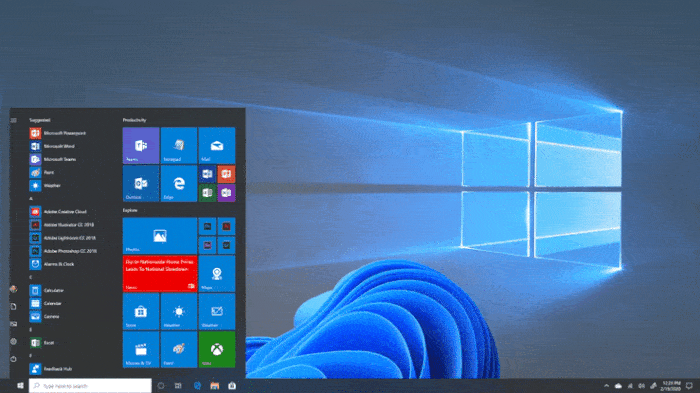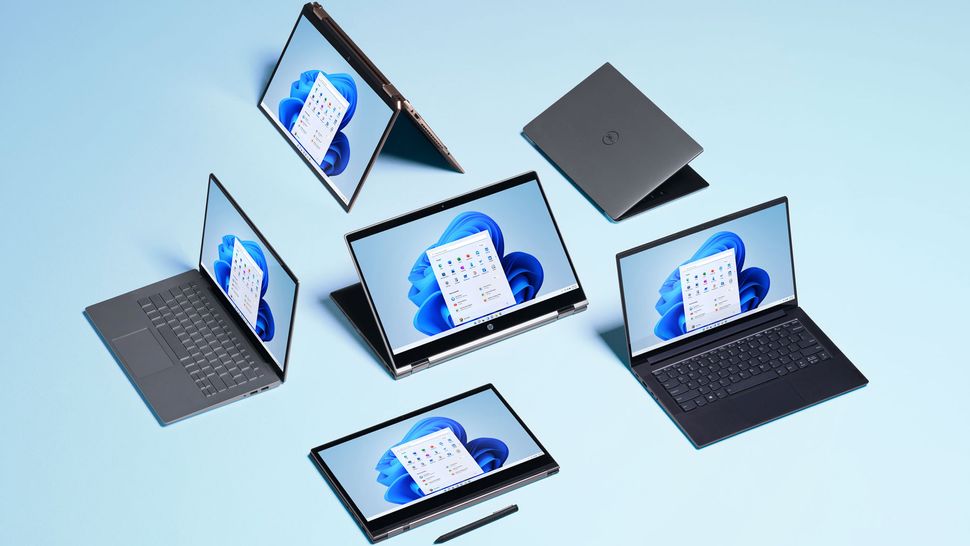This is not okay
Microsoft sometimes seems like the worst advocate for its own products.
Right now the company appears, from the outside, to be in a good place. Sure, Windows 11 adoption could be broader and enthusiasm for apps like Office, Outlook and Edge could be higher, but Microsoft as a company seems to be in a position of strength.
I say that for two reasons: AI and cloud computing. You see these words often in tech news these days, and while they're buzzwords that don't really mean what you think they mean, for Microsoft they both amount to the same thing: Relevance.
The company has long relied on the earnings of its Azure "cloud computing" business (a platform for hosting and moving data across a global network of data centers) to keep its coffers full. By investing billions in ChatGPT creator OpenAI, making Azure the only cloud computing platform ChatGPT uses, then integrating the chatbot-like AI into its new Bing with ChatGPT search engine, Microsoft has done something I never thought possible: Make Bing interesting and relevant.

Who knew we'd be talking about Bing this much in 2023? (Image credit: Shutterstock)
The company seems unlikely to stop there, and I fully expect to see a ChatGPT-like chatbot show up in Windows itself at some point down the line. If that happens, you may find yourself able to chat directly with Windows 12 in order to get things done.
What will it say back, I wonder?
If Microsoft's recent actions are any indicator, it'll likely squawk at you about how Edge is the best browser on Windows 12 and Bing is the only search engine worth using. It might also flash you an ad for a premium Teams subscription, or nag you to sign up for a Microsoft 365 subscription.
Frankly, that's a future I'd rather not live to see. It seems so tacky, so painfully silly, that I have a hard time imagining Microsoft would shoot itself in the foot so clearly by cluttering up its fairly decent software with ads for its other services.
And yet, that's exactly what the company keeps doing.
Microsoft, please stop
I'm thinking specifically here of the recent revelation that Microsoft intends to change(opens in new tab) its Outlook and Teams apps (at least, those tied to Microsoft 365 Personal and Family accounts) in Windows 10/11 so that all web links within them open in Edge by default.
"Stop trying so hard to get me to use Edge when I clearly don't want to. Stop trying to put Teams in my life when I clearly don't want it. Don't advertise OneDrive at me when I clearly barely use it."
The company has of course justified this change by claiming that it will eliminate "disruptive switching" in Outlook, allowing you to view a linked webpage side-by-side with whatever email led you to it. A similar justification for adding this feature to Teams assures us it will "help you stay engaged in conversation" as you browse the Internet.
Note that this overrides your default browser setting in Windows, so even if you have a third-party browser like Chrome or Firefox as your default, you're going to see Edge pop up when you click a link in an email—at least, the first time you do so in Outlook after this change goes live.
To damn Microsoft with faint praise, it does at least clearly spell out how to undo this "improvement" if you'd rather not use Edge. Once your copy of Outlook starts doing this, simply click the File menu and navigate to File > Options > Advanced > Link handling, then select whichever browser you prefer.
But this is a clear example of how Microsoft regularly tries to promote its own products and services in its own products and services, to the point that it becomes garish and off-putting.
This new move to start defaulting to Edge with Outlook and Teams links is actually fairly subtle, by Microsoft's standards. In the past, the company appears to have dallied with upselling other services via ads in the Start menu, ads in File Explorer and more.
Heck even Bing's chatbot is getting ads, by the looks of things, though those are likely to include more traditional ads for non-Microsoft services.

And of course, who can ignore the reminder that Edge really is the best browser for Windows which Microsoft causes to pop up whenever you use it to download a competing browser? I certainly can't despite my best efforts, so I end up reading it at least once a week when I unbox a new Windows 11 review unit and immediately download a different browser.
Each of these little tricks to try and boost Microsoft product adoption seems minor on its own, but when you look at the company's growing history of pulling these shenanigans it starts to look desperate. And right now, Microsoft should avoid looking desperate for market share at all costs.
This makes you look weak and needy
I say that not because Microsoft has a history of being punished for anti-competitive behavior and is currently embroiled in a complicated global PR campaign to convince regulators to let it acquire a multi-billion dollar game company, not at all.
No, I say it because as bullish as everyone seems to be on Bing with ChatGPT and the coming chatbot-powered revolution in tech, there's no guarantee it will pan out to be anything bigger than a flash in the pan. And while Microsoft is well-positioned to take advantage of a growing market for such tech if it lasts, this constant devaluation of its products with pop-ups, ads and misleading warnings makes it harder and harder to recommend Microsoft services.
Remember, Windows has been steadily losing market share to competitors for years. While it's hard to know by exactly how much since global sales figures are complex and it can be hard to account for PCs which are sold with Windows pre-installed, then retrofitted with another OS later, it's pretty clear Windows 11 isn't as popular as Windows 7 or Windows 10 were in their prime.
According to StatCounter(opens in new tab), which tries to tally operating system market share by monitoring the OS used by billions of visitors to millions of websites in its tracking network, Windows market share has plummeted roughly 30% in the past decade. While the numbers may not be completely accurate, the slide from upwards of 90% adoption to around 60% seems too big to be a mistake.

Microsoft made the move from Windows 10 to 11 look smooth, but declining market share reveals it was a bumpy road. (Image credit: Microsoft)
I think the increasing quality and relevance of macOS and ChromeOS have a lot to do with this, but a lot of the blame also belongs to Microsoft. I like Windows 11 just fine, but after using it since the beta-testing period I have to say it feels like a superfluous upgrade from Windows 10.
Now, as we barrel towards Windows 12 and the dubious promise of an AI-assisted future for all (whether you want it or not), I dearly wish Microsoft would stop trying so hard.
Stop trying so hard to get me to use Edge when I clearly don't want to. Stop trying to put Teams in my life when I clearly don't want it. Don't advertise OneDrive at me when I clearly barely use it.
Microsoft has been the custodian of Windows for longer than I've been alive, so it's well-positioned to know better than almost anyone on Earth how I like to use my PC, what apps I prefer, what websites I visit, and so on. Why not use that power for good, rather than trying to sell me your other products?
Windows may own a large portion of the PC market simply by virtue of being the default OS for most desktops and laptops, but I also think it owes its success to the goodwill of its users. A significant chunk of that goodwill was earned by delivering an operating system that's highly customizable, with loads of options for fine-tuning how it looks, sounds and behaves.
"Maybe Microsoft won't ever go so far as to lock down its products the way Apple does, but it's already taken many worrying steps in the direction of less respect for its customers."
Little by little, Microsoft seems intent on eroding that customizability and turning Windows (as well as its other products and services) into an echo chamber where Microsoft products endlessly demand center stage. It reminds me a bit of the "walled garden" approach Apple takes with its products and services, which tend to support and reinforce each other while not playing well with apps and devices outside Apple's ecosystem.
Maybe Microsoft won't ever go so far as to lock down its products the way Apple does, but it's already taken many worrying steps in the direction of less respect for its customers. I'm grateful that changes like defaulting to Edge for Outlook links can at least be reversed by the user, if they know how, but that still requires someone to get annoyed and then spend precious time looking up how to stop Outlook from annoying them.
That's time you can't get back, and if Microsoft really respected its users, it would respect their time by making a change like this opt-in rather than opt-out. That is, you should be notified that Edge has gotten improved integration with Outlook that allows you to view webpages side-by-side in the same window if you want—but you should have the option to opt in if you want, rather than the hassle of having to figure out how to opt out once Microsoft changes your copy of Outlook.
Of course if Microsoft did that, it might not get the same boost in Edge usage that it's likely to get once these changes to Outlook and Teams go live. It might instead have to rely purely on the strength of its products to claim market share, and right now Microsoft doesn't look confident enough to do that.
Instead, it looks a little needy—and just a little desperate.




Recommended Comments
There are no comments to display.
Join the conversation
You can post now and register later. If you have an account, sign in now to post with your account.
Note: Your post will require moderator approval before it will be visible.